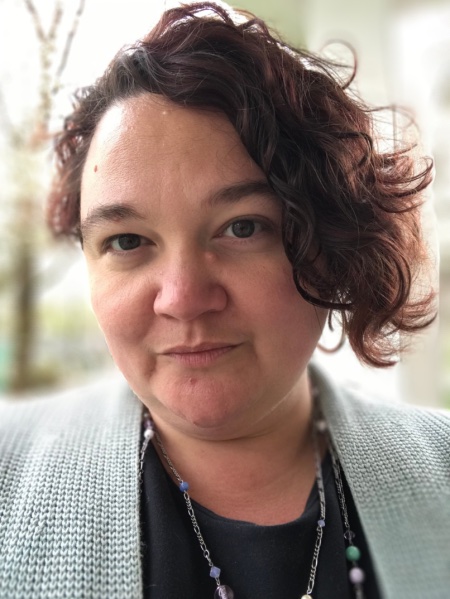Candidate for Board Member-at-Large
Francis K. Harper
University of Tennessee
Associate Professor
Francis K. Harper brings extensive expertise in anti-racist teaching and culturally responsive pedagogy to her candidacy for the AMTE board. She has led various anti- oppression initiatives, focusing on equity in mathematics education and fostering inclusive learning environments. Her leadership experience includes organizing professional development programs aimed at enhancing culturally responsive teaching among educators. Francis is passionate about advancing equity-focused teaching practices, addressing systemic barriers in mathematics education, and supporting professional growth for mathematics teacher educators (MTEs). Her unique perspectives and commitment to social justice in education make her a valuable addition to the AMTE leadership team.
Participation in AMTE and/or AMTE Affiliates(s)
As an active member of AMTE since 2014, I regularly engage in professional learning opportunities and present at the annual conference. I participated in STaR (2018-19) at a time when certain tensions arose around elevating sociopolitical work in mathematics education. I appreciated when President Philipp sought input from the cohort on addressing such tensions within the field at the conference. I was impressed by AMTE’s commitment to recognizing and responding to emerging issues relevant to junior scholars, whose contributions are often overlooked. When I served on the Research Committee (2021-24), I was thrilled to uphold commitments to elevating the work of emerging scholars by helping create the AMTE Dissertation Award and select its first three winners. These efforts were rewarding and only made me want to expand my contributions, as a board member, to elevating the voices of others who are regularly overlooked in the work of mathematics teacher education.
Participation in Related Organizations
Service and leadership (as chair) on the NCTM Research Committee has strengthened my commitments to bridging research and practice for mathematics teacher educators. My participation in the National Association of Family, School and Community Engagement’s (NAFSCE) core competencies for teacher preparation, alongside partnerships with local organizations serving BIPOC families, has influenced my decision to seek leadership in AMTE even more. Bridging my work across AMTE, NCTM, AERA’s SIGRME (as awards chair) and NAFSCE to my work with BIPOC families, I have become increasingly aware of gaps in mathematics teacher education related to mathematics teachers’ capacity to engage families and communities and to align visions for advancing equity in mathematics teaching and learning. I am motivated to serve on the board to raise awareness of this gap and to guide goals that will support mathematics teacher educators to advance equity aligned with visions of communities experiencing social, racial, and educational injustices.
Qualifications for the Position
Membership on AMTE, NCTM, and AERA’s SIGRME committees/boards and my university faculty senate has prepared me to serve as a voting board member for AMTE. I understand the responsibility of such a position and recognize the need to collaborate within existing policies and across competing priorities. I am practiced in drawing board members’ attention to perspectives and experiences not reflected by the current board membership, not by speaking for others but by drawing attention to the fact that some voices are missing. In similar roles, I am intentional about soliciting input from diverse groups affected by board decisions and basing votes and recommendations on broader perspectives. Further, I am qualified to serve as a liaison for the divisions based on my experiences with conference planning; integrating technology into mathematics teacher education (2020 AMTE NTLI awardee); facilitating professional development for PK-12 mathematics teachers; mentoring MTEs; and research centering advocacy and equity.
Three Goals AMTE Should Make a Priority
- Leadership/guidance for MTEs on advancing social and racial justice in contexts where anti-DEI efforts are institutionalized and culturally dominant. We have made great strides in elevating commitments to and the advancement of justice in mathematics education. But these gains are being threatened in ways that require new strategies by both MTEs and teachers.
- Leadership/guidance on a participatory turn in mathematics teacher education. Increasingly, research is participatory with communities, but MTE practice lags behind. AMTE can lead the way in engaging communities, particularly communities outside of schools with members from marginalized groups, as partners in the preparation and development of mathematics teachers.
- Expand upon the 2023-24 goal of connecting with other groups like NCTM to (re)imagine AMTE’s role in policy and advocacy work. Shared position statements are important, but these statements do little to ensure that policy (and resulting practice) is guided by the positions of our field.

